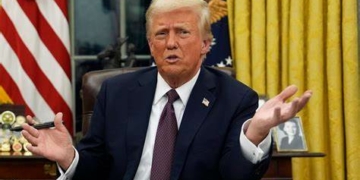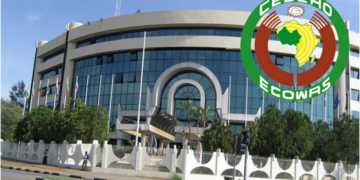Walker and Ball are alumni of Archbishop Carroll High School in Washington, D.C. Even though they both graduated in 1969, the two never really spoke to one another. But when Walker sent out an email last year to his old classmates asking for a kidney, Ball said he recognized the name.
He decided to respond. If he was a match, he told Walker, he would donate his kidney.
“Understandably, I think no one I’ve spoken to would do this,” Ball told CNN from the hospital after the surgery. “It depends on the person, I guess.”
It only took a few months to set everything up. The classmates reunited in Washington, DC, where Walker still lives.
In March, they attended a dinner with about 20 classmates, reminiscing and making up for lost time.
Then, earlier this week, they walked into George Washington University Hospital to undergo the life-saving procedure.
Walker became ill while working as a bureau chief for National Public Radio in South Africa. There, he was misdiagnosed and received incorrect treatment. By the time he came back to the US about 18 months ago, he knew his days were numbered if he didn’t find a solution.
Walker was in desperate need of a kidney and put his name down on every wait list. But one of the high school friends he maintained contact with had a different idea.
“One of [our] other classmates said ‘Well, did you check with the school?’” Ball told CNN.
Walker obtained an e-mail list from the school, and he sent out a call for help in November. The subject line of the message was, simply, “A request for life.”
“It is nearly impossible for me to come to terms with what I must ask of you, and that is your help in finding a kidney donor so that I can have a chance to improve my quality of life — and perhaps even to extend it beyond the expected span of a dialysis patient,” Walker wrote.
He then explained how difficult it is to get a viable kidney for transplant. He told his classmates he completely understood if no one felt comfortable with such a request, but that he wanted to share his story to raise awareness anyway.
“Consider being an organ donor after death and also, help me by sharing my story with everyone you know. At the very least, I want to bring awareness to kidney disease and living donation,” he wrote.
“I am hopeful my efforts will help me receive a kidney sooner and encourage others to consider helping the many people on the wait list.”
Less than 15 minutes later, Ball responded.
“I will call the hospital in the a.m.,” he wrote. “I pray that you get what you need.”
The response blew Walker away.
“Immediately, I get this response from Charlie and you’re suspicious. What’s wrong with this guy?” Walker said. He said that Ball’s decision to help a black man was a breath of fresh air in a political environment that he says has too much racial tension.
Ball’s generosity could’ve been an issue since doctors told him they usually don’t accept donors over the age of 60. But since he was in such good physical condition, it was possible. He had many tests done in California before even flying to DC to meet with Walker.
“I responded and said, ‘well I’ll just take the tests and if it goes well I’ll end up in my current condition,” Ball said. “I passed all the tests.”
Ball’s family was concerned before the surgery, but recognized that his passion for volunteer work was just one of the factors that helped him make the decision. Ball has said for years, he’s looked to a quote attributed to Saint Francis of Assisi: “It is in giving that we receive.”
Now, the men are focused on recovery. They are both doing well and are looking forward to leaving the hospital this week.




Discussion about this post